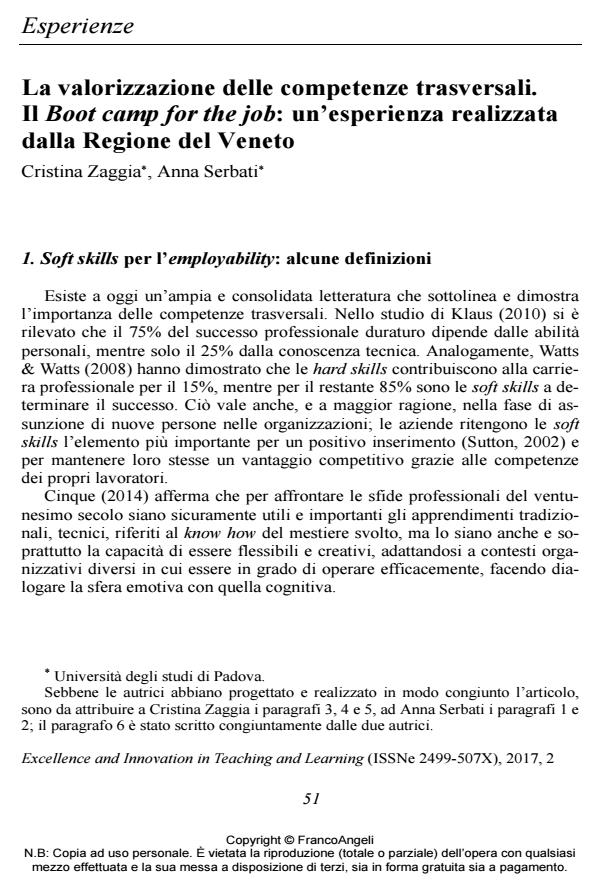Soft skills development. Boot camp for the job: an experience carried out by the Region of Veneto
Journal title EXCELLENCE AND INNOVATION IN LEARNING AND TEACHING
Author/s Cristina Zaggia, Anna Serbati
Publishing Year 2017 Issue 2017/2
Language Italian Pages 17 P. 51-67 File size 202 KB
DOI 10.3280/EXI2017-002004
DOI is like a bar code for intellectual property: to have more infomation
click here
Below, you can see the article first page
If you want to buy this article in PDF format, you can do it, following the instructions to buy download credits

FrancoAngeli is member of Publishers International Linking Association, Inc (PILA), a not-for-profit association which run the CrossRef service enabling links to and from online scholarly content.
The paper analyses the scientific literature, the main national and international classification of the soft skills and the importance of their awareness. It presents an experience carried out by the Region of Veneto in partnership with Italia Lavoro, now called Anpal Servizi, concerning an innovative methodology of development of the soft skills. It consists in physical and narrative exercises during which young people show their skills to those organizations interested in identifying talented youth to hire. The paper presents the objectives, the methodology and some results reached by the experience Boot camp for the job 2016, emphasizing the fact that it has been recognised as a European good practice in terms of efficiency, innovation, transferability and reproducibility.
Keywords: Soft skills; awareness; employability; bootcamp.
Cristina Zaggia, Anna Serbati, La valorizzazione delle competenze trasversali. Il Boot camp for the job: un’esperienza realizzata dalla Regione del Veneto in "EXCELLENCE AND INNOVATION IN LEARNING AND TEACHING" 2/2017, pp 51-67, DOI: 10.3280/EXI2017-002004